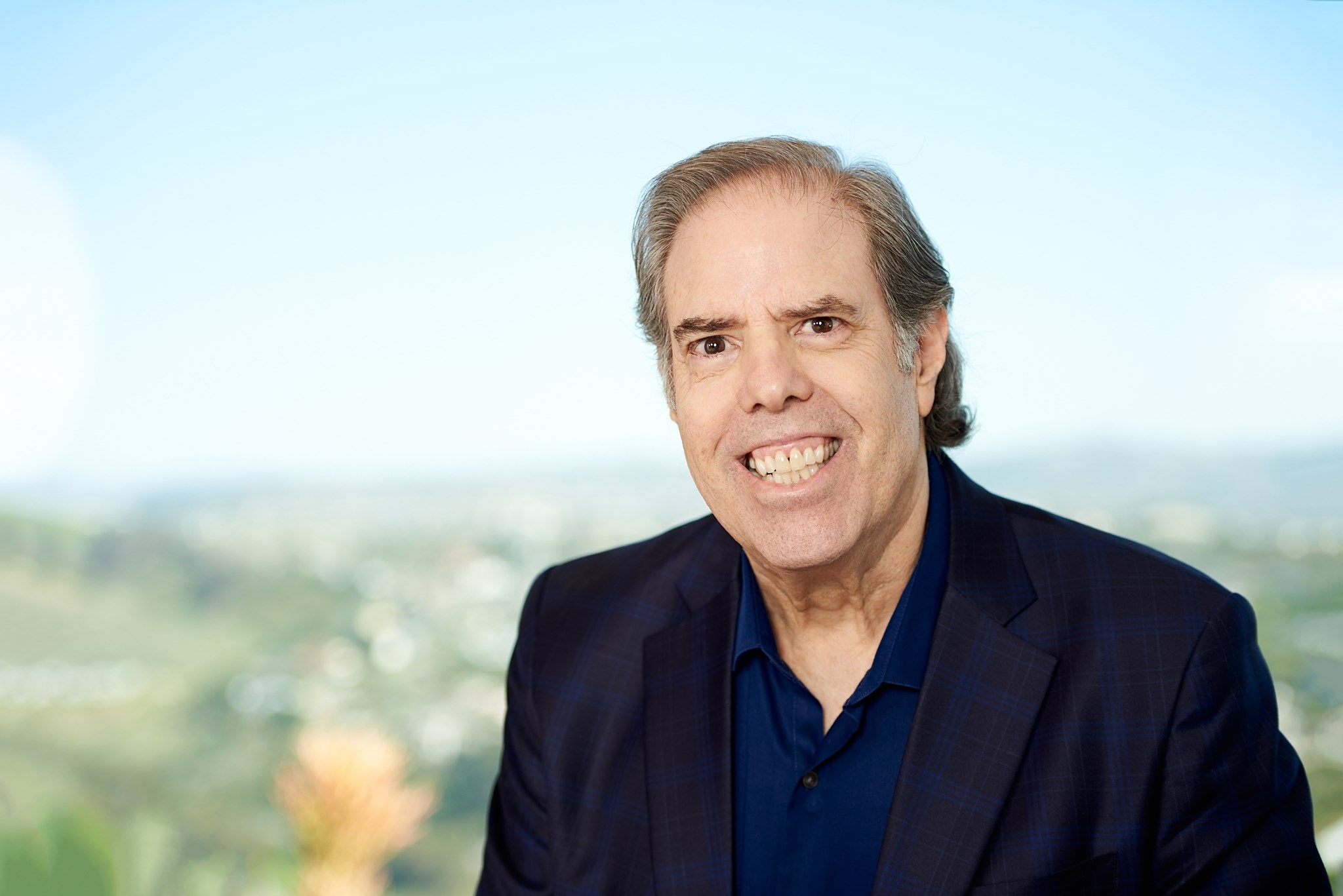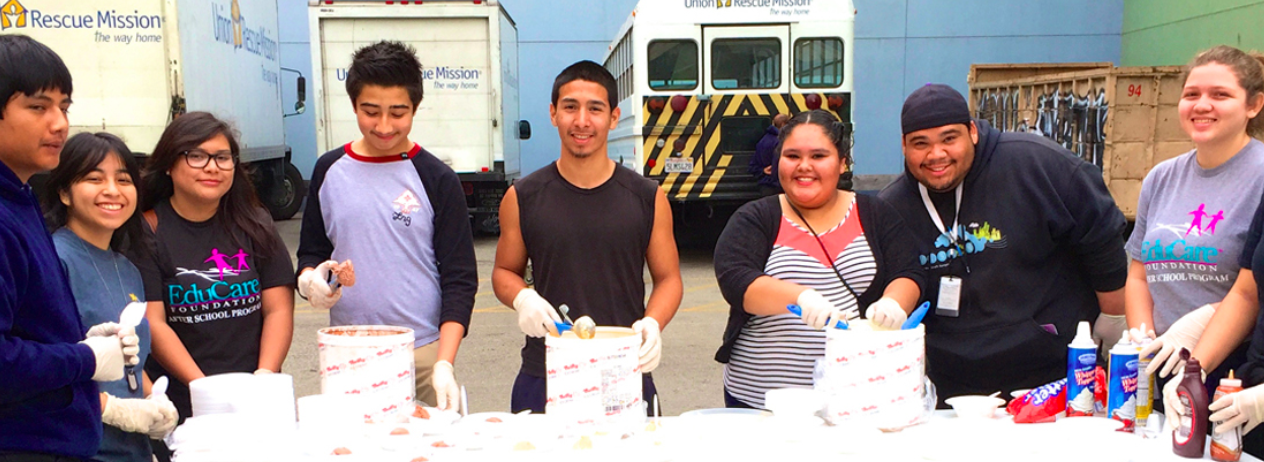Today, I am excited to welcome Stu Semigran the president and co-founder of the EduCare Foundation. Stu is committed to helping youth realize and achieve their full potential by educating their hearts and minds. He has 30 plus years of experience as an educator, facilitator and trainer. The EduCare Foundation is an internationally recognized educational organization that works with students, educators and parents to inspire and empower young people to become responsible citizens, compassionate leaders, and to live their dreams. I’ve known Stu for decades and consider him one of my role models for leadership.
What experience has inspired you the most in your journey of becoming a conscious business leader?
When I was just a little boy, there was something inside of me – I had a prayer that I wanted to help people. I wanted to be of service. Although I was earmarked to be the first doctor or lawyer in our family, it became clear to everyone, that no, that’s not how it was going to go.
As I got into high school, I started volunteering with kids and was invited to be a counselor at a Fresh Air Fund camp in upstate New York for inner-city kids and kids with disabilities. I just fell in love with those kids and realized that my purpose had a lot to do with giving back and helping to lift kids, wherever they might be, whatever their circumstances were, from one kid to another. By the time I was 20, I told myself, “Okay, put medicine aside, put law aside. I want to find my way and really dive into education and work with kids, kids who need us the most.”
What three tips would you give any leader for making a meaningful difference in the lives of their direct reports, the people that work for them?
To be true, true to yourself and true to them. To be real, be upfront, to be honest and authentic.
If I’m not true to them, then that relationship just takes a nose dive. How do I really trust myself and trust that as I bring them into the process that they are there to support and lead? One of the greatest things that I’ve found is to really give it over. To let them lead. We have about 15 to 20% out of our 300 staff members, who were kids or students with us or similar programs in their high schools. Now, 10 or 15 years later, they’re guiding our organization. And so, a lot of it has to do with trusting them, being straight up with them, looking for the best in them, and getting out of the way.
We have accountabilities. But it’s not “I got you” – it’s a “let’s learn, grow, develop, and rise together and support each other. “ We’re a learning organization and feedback is part of that support.
Has this been any more difficult in a virtual environment? Because you’re talking about a lot of things that involve heart connection, and yet we’re in this COVID environment.
This is a unique opportunity right now…. almost like a call to action and we’re going to work in ways we’ve never done before. We quickly started to talk at different levels across the whole organization. One of the places we needed to step up was self-care and support for each other.
So, we started having online chats, support groups, and check-ins with one another and we realized we needed to take care of ourselves so we could help take care of others. And that has stayed with us.
One of our key points is, we’re all in this together. We’re going to keep working this through and then it ripples out to how we’re doing that with the kids. We’ve moved quickly into online teaching, virtual supports, delivering school supplies, helping out with food campaigns, and reaching out to individual families who needed more support than others.
What are the one to three mindset changes that you would advise or counsel a teenager so that they end up being leaders in their own world to foster inspiration, connectedness and transformational personal growth?
One of the mindsets would be to be okay with wherever you are with yourself in these times and accept your process right now. You may have tough situations at home and have feelings that you may not have felt before.
Second, express those feelings – share them, write it, speak to friends, speak to people. We have a program for this – ACE Heartbeats – where kids can express what their process is, what they’re handling right now, and give them some tips.
Also, persistence is called for right now. Resilience is called for right now. It’s important to give them the view that persistence and resilience are important and that they have the assets that they need, they’re not alone. So that’s why we try to bring them in, maintain connection, build community, and support them.
What happens if the parents can’t help with that, or don’t know how to handle that?
That parent – student – teacher triangle is necessary. So now we’re hosting parent workshops, and will soon be holding family workshops.
How do you develop leaders to have, or encourage greater consciousness?
One of the first things we look for in our interview process of who is coming in is – is there a willingness, is there a true love and dedication to working with kids? Is there a desire to learn and to grow? So more than just the skill level, we’re looking for the depth of that individual. And we spend some time on that. Once they come in, a lot of it has to do with not expecting everyone to jump right into the culture of EduCare overnight, or to take on Heartset as a way of being. In addition to providing training, it’s also important to be patient. Everyone’s doing the best they can. There’s a willingness to learn and grow and we can support them, offer training, provide feedback, and open the lines of communication.
Just because it’s a conscious environment, if you will, a caring environment and an accepting environment, that does not mean that there aren’t very clear expectations that need to be upheld. You don’t necessarily have to uphold it overnight. There is a learning process. There’s a growing process.
Tell us a little bit more about Heartset in relationship to Mindset.
They go hand in hand. We have 8 skill sets for a growth Heartset® to complement a growth mindset:
Skill #1: Seeing the Best in Everyone – Honoring
Skill #2: Positively Reinforcing – Praise
Skill #3: Listening from the Heart
Skill #4: The Power of Choice – Personal Responsibility
Skill #5: Resolving Conflict
Skill #6: Moving from Judgment to Forgiveness
Skill #7: Turning Challenges into Learning Opportunities
Skill #8: Giving and Receiving
Build the Heartset, build the mindset and keep, keep moving in that direction for yourself – that would be in a sense how you would build conscious business leaders in the field.
There’s so much out there. We’re also asking people to take small steps rather than expecting great changes overnight.
How do conscious business leaders better support people of color, women, and other minorities trying to step up into leadership roles?
As leaders, we need to really check ourselves out. I consider myself to be pretty open-minded and very accepting, but I knew I had to really stop and look at my biases or unconscious stereotypes.
I asked myself, “what were ways that I, as an educator, may not have been really stepping up to the plate?” And as we became more aware of it, then it’s not to become quiet about it. When I saw what this, this latest wave of standing up in advocacy for civil rights and Black Lives Matter, I felt strongly that it was time for non-profits, corporations and many others to let our voices be known.
At EduCare, we decided that we wanted to be speaking out as well. We had to honestly look at our practices. You know, we pride ourselves that the diversity of our staff matches the diversity of our students. However, we realized that at our board levels, committee levels, and our top management – there was room for improvement. We’re taking steps of reviewing and then educating ourselves and our staff how we can step up even more and know that we’re part of the community we serve and we have to be a voice for that community.
Some people may say, “well, we’re an educational organization.” My response is that this is part of our education. These are our kids, this is a part of our community. There’s a lot of soul searching. We’re part of a gathering of nonprofits that are standing up and advocating – and we have to do it in a way that sits well inside of our foundation. So, there’s a lot of balancing with everything that’s going on right now.
I think we’re called upon right now to make the choice where kindness and love is being called upon. Love as the foundation of education is core at EduCare Foundation. We’ve worked with over a quarter million students over these 30 years and those seeds of love and kindness are finding their ways out in the community.
For more information visit:


